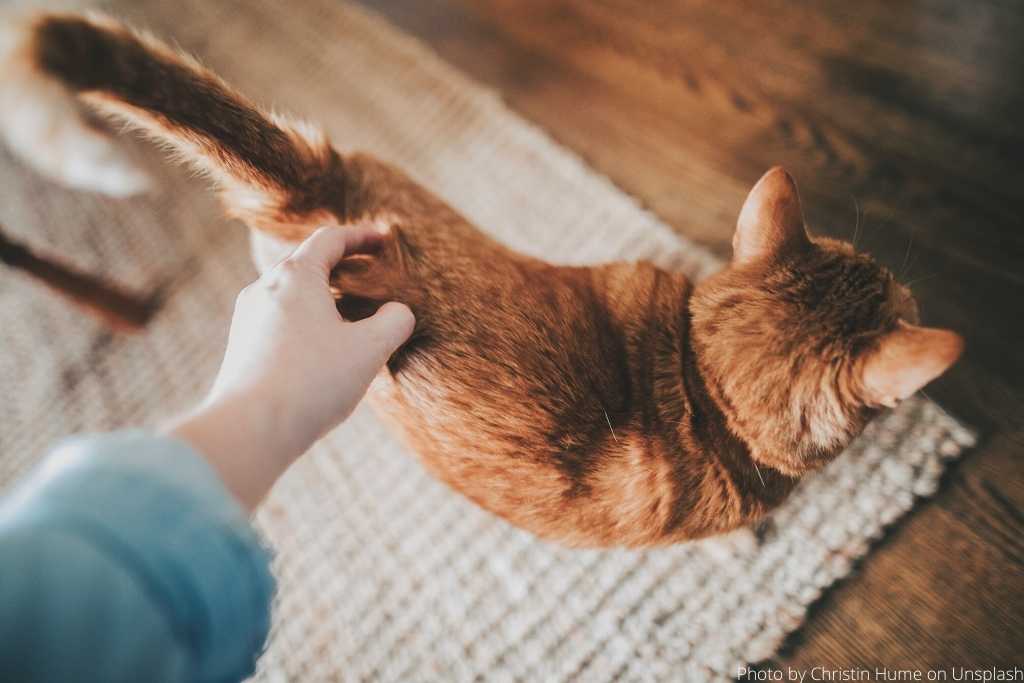AWAY FROM FREE SHIPPING
NICE. SHIPPING IS ON US!
AWAY FROM FREE GIFT
CHOOSE A FREE GIFT DURING CHECKOUT!
YOUR CART IS EMPTY. SHOP NOW.
Any cat lover will be familiar with this sound - it’s a great indicator that your cat is feeling happy and content. But did you know there are other reasons why our favourite feline friends make this gravelly sound?
Let’s take a look at some of them, so you can understand your cat even better!

Cat purrs are created through quick movement in their voice box. They’re diaphragm also moves at around 20-30 times a second. As your cat breathes, air enters their body and touches these vibrating muscles, producing a purr.
But what situations actually call for cat purrs?
Purring is the most basic way for cats to express contentment, whether to another cat or their favourite human. Similar to a happy cat kneading their paws, cat purring shows that they’re feeling safe and secure. They might even be feeling the same kind of nurturing they feel from their mothers from you!

Next time you catch your cat purring, keep a lookout for other signs of happiness - such as lying on their back, half-closed eyes and a still tail. Make sure to treat your happy cat to plenty of hugs, cuddles and fun cat toys like FuzzYard’s adorable Pizza Cat Plush Toy!
You might hear your cat purring a lot right before dinner time. Some researchers have found that pre-dinner purrs actually sound different from cat purring for other reasons! Cat purrs that are brought on by hunger sound a little bit more unpleasant than a typical purr - it contains a higher-pitched note that sounds like the crying of a newborn
If you hear your cat purring outside the kitchen, maybe it’s time to fill up their food bowl! Make sure to get a sturdy feeding bowl like this one!

Kittens are especially big “purr-ers”. Purr-like vocalizations are great for telling mama cat that they need more attention or are happy with what they’re receiving.
Nursing kittens will therefore purr a lot when they’re stroked or fed while nursing. As they grow older, this habit stays with them. The next time you’re feeding or cuddling your cat, make sure to keep an ear out for some adorable purring!
Cat purring has been theorized to be a healing mechanism that helps cats recover more quickly. Because cats have adapted to conserve as much energy as they can, purring most probably also serves a specific purpose.
One theory experts have is that purring helps cats stimulate their muscles and bones without expending too much energy.
This apparently helps cats build their muscles, repair their tendons, make breathing a little easier and lessen pain and swelling. A lot of potential health benefits for a tiny action like purring, isn’t it?

Purring doesn’t just help your cat heal, it might also be helping you heal!
Cat purring is believed to release endorphins in humans, lowering stress hormones and blood pressure. Some people also claim that laying your head near a purring cat when you’re suffering from a headache can actually help to clear your headache. Talk about cat purr healing!
Regardless of whether all of these theories are true, one thing’s for certain. Cat purring is an incredibly rewarding sound to hear because for the most part - cats purr when they’re happy. Knowing your cat is happy and feeling secure in your home is what every cat parent aims for after all.

The ultimate question when it comes to cats purring - is whether their larger counterparts in the wild purr as well!
In reality, most big cats like lions, tigers, leopards and jaguars can’t actually purr as they don’t have the necessary equipment. Generally speaking, smaller cats like bobcats, ocelots, lynxes and cougars can absolutely purr!
However, there’s an exception to the big cat rule. Cheetahs can actually purr, but can’t roar at all. In fact, Theodore Roosevelt once compared a cheetah’s call to the high-pitched chirp of a bird!

If you want to motivate your cat to purr more, give her plenty of pets and cuddles! Talking to your cat and providing them a comfortable bed like FuzzYard’s Northcote Cat Cubby Bed also helps. That said, some cats just prefer to have more space - so leaving them alone for a bit might also help!
However, at the end of the day, cats are mysterious animals. So don’t worry if your cat doesn’t purr much! Not all cats enjoy communicating through purrs. Experiment and observe your cat to figure out how they display their happiness!

Comments will be approved before showing up.



